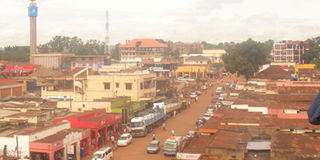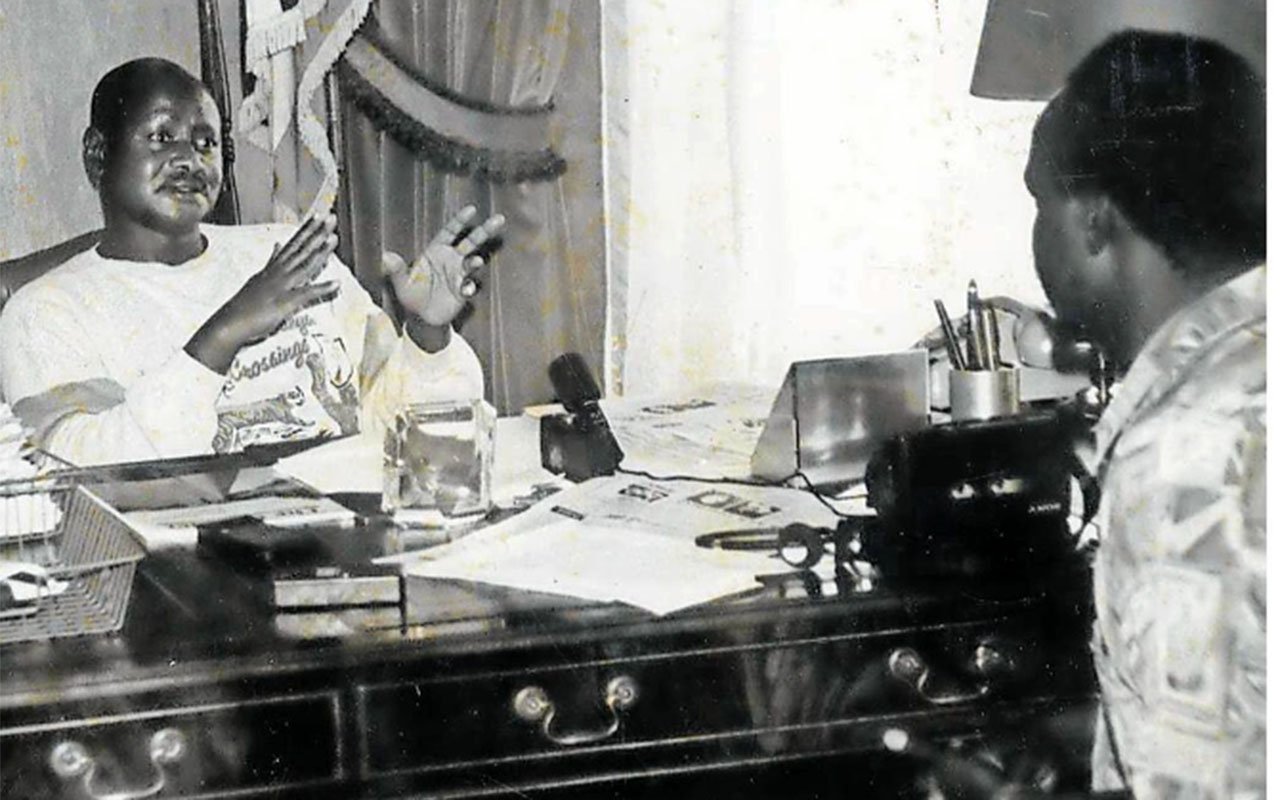Prime
JINJA: A town struggling to find its old glory and future

An aerial view of Nizam road in Jinja town. Although there are efforts for Jinja town to get back to where it was, the recovery is slow. PHOTO BY DENIS EDEMA
It’s the mid-90s and Walukuba Housing Estate is scarcely touched by the gloom that has settled over Jinja. In the morning, human queues flow along its gnawed tarmac roads and dissipate into the industrial area, reporting to work at the grain millers, cigarette factory, hoe factory and sugar processor.
The rest continue on to the town. On such days, weekdays, it is quiet and peaceful, like an abandoned mining camp. Built in the colonial era, most of the houses are falling apart, but the low-income families that call it home don’t seem to mind. They are content, after all.
Seeping through that disintegration are a number of invariable ticks that the adults have grown up with and don’t envision disappearing any time soon; the siren at the tobacco factory going off promptly at 7 and 7.30 in the morning, and then at 1 and 1:30 in the afternoon; the sweet and teasing aroma of baking bread that wafts through the estate all day.
But it wasn’t to remain untouched indefinitely. As the decade came to an end, the grain millers and sugar processors stopped operating. One morning, the siren stayed silent, and then the next, until the estate became used to the silence. This silence was a knell; soon, the cigarette factory closed, emptying hundreds of workers into the estate.
That was in 2005. By that year, when British American Tobacco moved its production unit to Kenya citing high local taxes, Jinja, of which Walukuba estate is only a small part, was beginning to emerge from its slump. In the 1990s, the industries that had over the course of the 20th century transformed it from a fishing outpost to Uganda’s workshop had ground to a halt, sending it into a desolate soul-searching.
The town was stuck in limbo. Main Street, between Clive Road and Biashara Supermarket ( which for many years was the only supermarket in the town) was a brief and dull line of tailors, stamp makers and lifeless retail shops.
The rest of the town, what visitors immediately noticed, was flecked with unhurried bicycle boda-bodas. The greying buildings, archetypes of Indian and English colonial architecture, evoked a vibrant era to which it seemed, the town would prefer to return to rather than lurch into an uncertain future.
It had its sparks. Those craft shops on the final stretch of Main Street were kept alive by a year-round stream of tourists. Jinja is after all, the home of the Nile river which erupts into awesome falls and rapids along its course.
In the evening, the streets around the central market and taxi park were cluttered hosts of traders from nearby villages. Mounds of fresh potatoes, boiled yams, jackfruit, second hand clothes and shoes, rat traps; take your pick. If the Kyabazinga wanted to see his people congregated at one event, he’d only have to visit the annual agricultural fair.
No one knew for certain what was wrong; lethargy, neglect, the decay that creeps over former industrial towns dragging them into a deathly embrace? It could be all those things. It’s actually all those things although, ultimately, it resisted the last. It shook off that embrace, and still does so today.
Dunlop, British American Tobacco and Mulbox are gone, yes, but Bidco, several grain millers, two new hydro-electric dams constructed in a space of less than 10 years, and a bunch of new industries have taken on once laid-off workers. Hundreds more have come from elsewhere.
Even then, “Jinja is still on a recovery path, and not yet where we want to be,” the town’s mayor, Mohammed Baswale Kezaala, said. That ideal destination is a seamless and functional two-pronged town, with vibrant manufacturing and tourism sectors. Unless more hydro-power dams are built upriver to submerge its falls and rapids, the Nile will always attract kayakers and viewers.
Although the Itanda falls at Butagaya are longer and bigger than Bujagali’s were, the emotional and nostalgic attachment of most locals to the latter will never fade. Kezaala says the town authorities are now stoking up interest in Mpumudde Hill which contains a cultural site.




